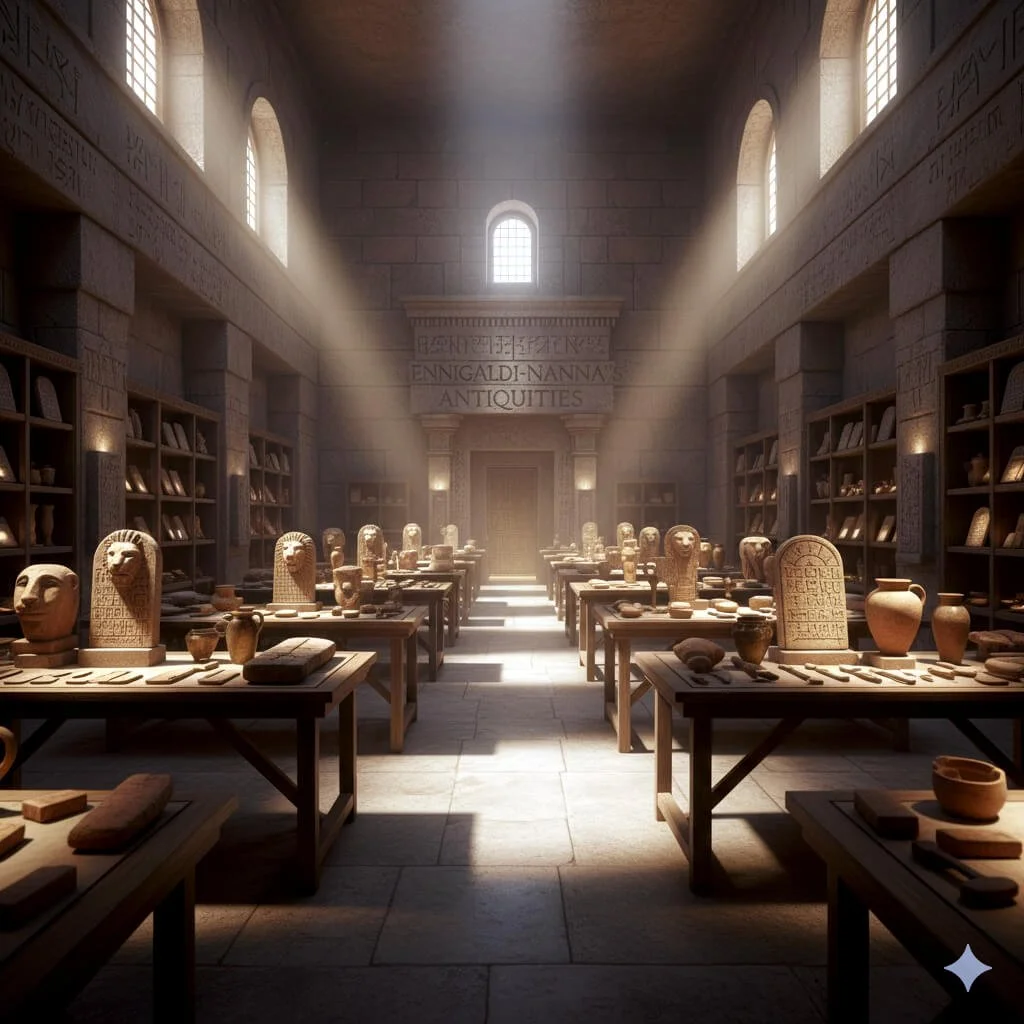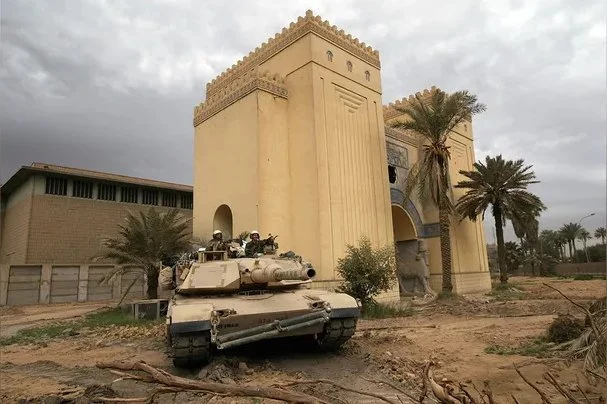Looting as a tool of Conflict and Culture Wars
Image Credit: AI Generation - "The World's First Museum," created in 530 BCE by Babylonian princess Ennigaldi-Nanna.
In 530 BCE, a Babylonian princess named Ennigaldi-Nanna created what historians now call the world’s first museum. Inside her palace in the city of Ur, she carefully arranged artifacts from civilizations long gone, complete with clay labels written in multiple languages. Not only was it an impressive collection of objects; it was also an early act of cultural preservation, a recognition that a people’s story was worth remembering.
That instinct — to safeguard history for the future — has made museums natural targets in times of upheaval. From Napoleon’s armies seizing artworks across Europe, to the Nazis’ systematic plunder of Jewish cultural treasures, to the devastating looting of the Iraq Museum in 2003, we see a common thread: when societies are torn apart, museums are often the first places attacked. Why? Because they are more than buildings. They are storehouses of identity, memory, and meaning. To erase or control a people’s culture is to weaken their sense of self.
A U.S. tank outside the plundered Iraq Museum April 16, 2003 in Baghdad, Iraq. (Photo by Oleg Nikishin/Getty Images)
Museums also face challenges in times of political polarization. Funding cuts, scrutiny over curatorial choices, and debates over which narratives are highlighted can create flashpoints in the “culture wars.” Whether it’s discussions about returning cultural artifacts to their countries of origin or re-examining the story of a founding figure to include previously excluded perspectives, these contests are about the very purpose of history itself. Institutions like the Northeast Louisiana Delta African-American Heritage Museum navigate these complex conversations thoughtfully, striving to serve as forums for dialogue rather than fortresses of ideology.
That is why museums like the Northeast Louisiana Delta African-American Heritage Museum matter so deeply. We don’t exist to enshrine a single version of the past. We exist to preserve the fullness of human experience — to give space to stories that might otherwise be silenced, and to keep alive the artifacts that serve as evidence of those stories with authenticity and power.
When you walk through our galleries, you’re walking inside the ongoing struggle to protect memory against forgetting, to protect culture against erasure. Supporting museums means supporting the freedom to remember, to learn, and to imagine a shared future rooted in truth.
📌 Take Action:
Become a member today. Help us protect these stories.
Donate now. Support our preservation and education efforts.
Share this post. Spread the word about why cultural memory matters.


